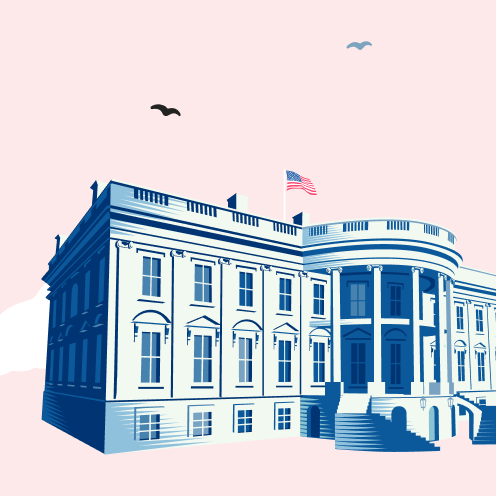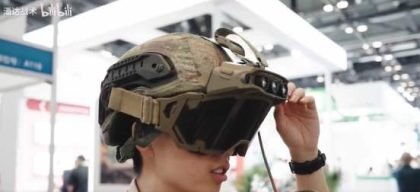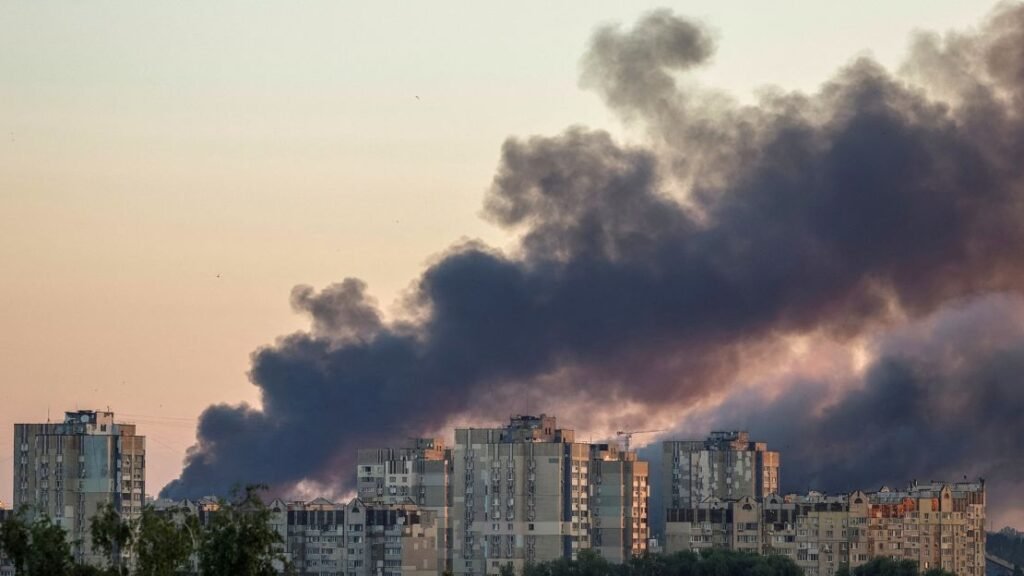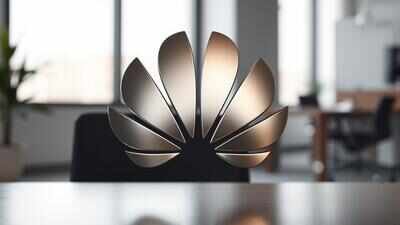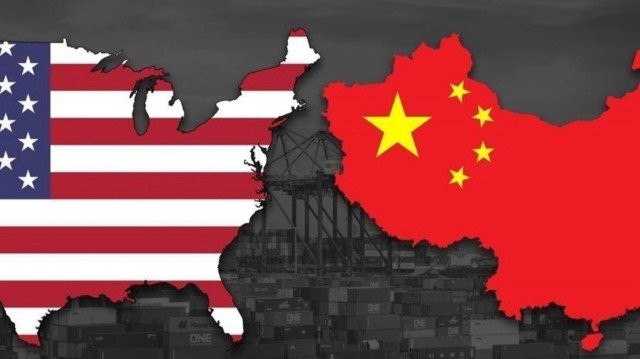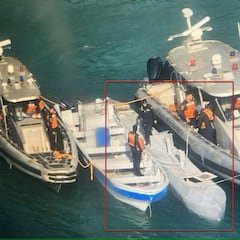Thai Son S.P. Co. garment factory in Thu Duc, Ho Chi Minh, Vietnam, on June 21, 2025.
Daniel Ceng | Anadolu | Getty Images
U.S. President Donald Trump announced a trade pact with Vietnam on Wednesday, but its scant details have left economists wondering about what it would mean for the flow of Chinese goods rerouted through the country.
Trump said Wednesday there would be a 20% tariff on goods from Vietnam and a 40% “transshipping” tariff on goods originating in another country and transferred to Vietnam for final shipment to the U.S.
Chinese manufacturers have used transshipping to sidestep the hefty tariffs on its direct shipments to the United States, using Vietnam as a major transshipment hub.
White House trade advisor Peter Navarro alleged that around one-third of Vietnam’s exports are rerouted from China and described Vietnam as “essentially a colony of communist China” in a interview with Fox News in April.
The latest deal is an apparent strike against such rerouted shipments from China, said Yao Jin, an associate professor of supply chain management at Miami University.
But enforcing targeted levies on transshipments will be a tough task for Hanoi, as it will have to define the scope of what would qualify as “made in Vietnam” and what constitutes transshipment.
“If it only applies to pure transshipments — goods sent from China to the US via Vietnamese ports, without any local assembly — then there should hardly be any impact on Vietnam,” Frederic Neumann, chief Asia economist at HSBC Bank told CNBC on Friday.
However, if the 40% tariff applies to “all Vietnamese goods with even a minimal share of Chinese components, the disruptions could be significant,” Neumann said.
Similarly, Dan Wang, China director at Eurasia Group, said “it is unclear how this would work — presumably the burden falls to Hanoi on the issuance of rules of origin certificates — and what level of Chinese components, if that is the metric, will be deemed too much.”
As more Chinese manufacturers moved their production to Vietnam since Trump’s first term, Vietnam’s trade surplus with the U.S. more than tripled to a record high of $123.5 billion last year from less than $40 billion in 2018, according to the U.S. Census Bureau.
Template for others?
The agreement made Vietnam the latest country, after the U.K. and China, to secure some trade relief from Trump and will likely serve as an important reference for other Southeast Asian nations in their ongoing trade negotiations, analysts said.
Many countries are racing to reach trade deals with the U.S. before the 90-day pause expires on July 9, when Trump’s “reciprocal” tariffs are poised to take effect.
Many Southeast Asian nations had benefited from the last U.S.-China trade war during Trump’s first term by serving as alternative manufacturing and export hubs.

More trade deals will be determined by a country’s own judgment of its exposure to the U.S. and China markets, the level of transshipment activity in that country, and the implications for local industries, said Lynn Song, chief China economist at ING.
Shipments from China to many Southeast Asian countries this year rose to a record high, Chinese customs data showed, as exporters diverted shipment to alternative markets to sell to the local markets or transship to the U.S.
If the Vietnam and U.K. trade deals are any indication, the United States’ future deals with other countries will likely involve measures to rein in transshipment, increased purchase commitments of U.S. goods and “provisions aimed at pressuring China,” Stephen Olson, former U.S. trade negotiator and current visiting senior fellow at the ISEAS-Yusof Ishak Institute, told CNBC.
The strict security requirements for steel and pharmaceuticals in the U.S.-U.K. deal are widely seen as an attempt to squeeze China out of the British supply chain.
China holds fire
China pushed back against the U.S.-Vietnam trade deal on Thursday over concerns that the Trump administration would use its ongoing tariff negotiations with third countries to curb its exports.
The country’s commerce ministry said Thursday that it was “conducting an assessment” of the agreement, urging other countries not to seek a deal with Washington at the expense of China’s interests.
China will likely see Washington as using “reciprocal tariff negotiations to get third countries to try to squeeze China out of supply chains,” Olson added. He expects Beijing will pressure countries not to accede to U.S. demands and push back against that practice in negotiations with Washington.
That said, Beijing will likely hold off from taking any concrete action until details of the deal are clarified, experts said, while waiting to see how other countries’ trade deals shape up.
“Flipping the table over a single Vietnam trade deal would be unwise,” ING’s Song said.
The U.S. and China have in recent days walked back a slew of restrictive measures against each other in honor of the trade consensus reached in Geneva, Switzerland, in May. Washington has since lifted export restrictions on ethane, chip-design software and jet engine parts, while Beijing is set to fast-track approvals for rare earths exports.
Both sides reached a trade framework last month following talks in London, which remains in effect until mid-August, with Chinese goods currently facing tariffs of around 55%.
The U.S.-Vietnam deal also implies that the ultimate tariffs on Chinese goods are unlikely to fall under that 40% threshold, according to Nick Marro, principal economist at the Economist Intelligence Unit, as lower duties on direct shipment from China could encourage firms to shift production back there, undermining the Trump administration’s broader objective of curbing China’s industrial capacity.


